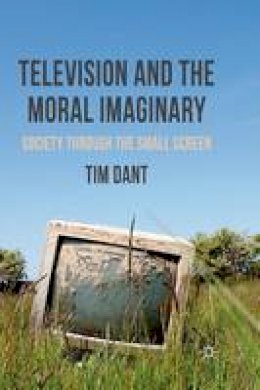
Stock image for illustration purposes only - book cover, edition or condition may vary.
Television and the Moral Imaginary: Society through the Small Screen
T. Dant
€ 123.36
FREE Delivery in Ireland
Description for Television and the Moral Imaginary: Society through the Small Screen
Paperback. "Just how bad is television? Drawing on a range of theoretical sources including Husserl Lacan, Lefebvre, Sartre, Schutz and Adam Smith, this book takes a phenomenological approach to the small screen to offer an original sociological approach to television and its contribution to moral culture of late modern societies"-- Num Pages: 255 pages, biography. BIC Classification: APF; HPQ; JFCX; JFD; JFSR. Category: (G) General (US: Trade). Dimension: 235 x 155 x 13. Weight in Grams: 385.
Just how bad is television? Drawing on a range of theoretical sources including Husserl Lacan, Lefebvre, Sartre, Schutz and Adam Smith, this book takes a phenomenological approach to the small screen to offer an original sociological approach to television and its contribution to moral culture of late modern societies.
Just how bad is television? Drawing on a range of theoretical sources including Husserl Lacan, Lefebvre, Sartre, Schutz and Adam Smith, this book takes a phenomenological approach to the small screen to offer an original sociological approach to television and its contribution to moral culture of late modern societies.
Product Details
Publisher
Palgrave Macmillan
Format
Paperback
Publication date
2012
Condition
New
Number of Pages
247
Place of Publication
Basingstoke, United Kingdom
ISBN
9781349313624
SKU
V9781349313624
Shipping Time
Usually ships in 15 to 20 working days
Ref
99-15
About T. Dant
TIM DANT is a professor of Sociology at Lancaster University, UK, and has published books on material culture, critical theory and the sociology of knowledge. He is currently interested in phenomenological approaches to understanding culture and the moral turn in sociological theory.
Reviews for Television and the Moral Imaginary: Society through the Small Screen
Dant's Television and the Moral Imaginary represents a welcome contribution to television studies and serves as a bit of a palliative for the decades of television scholarship that would reduce the medium to the Rodney Dangerfield of media platforms. In fact, Dant's appreciable work represents what's good about emergent television scholarship in the digital age. - David Craig, International ... Read more
